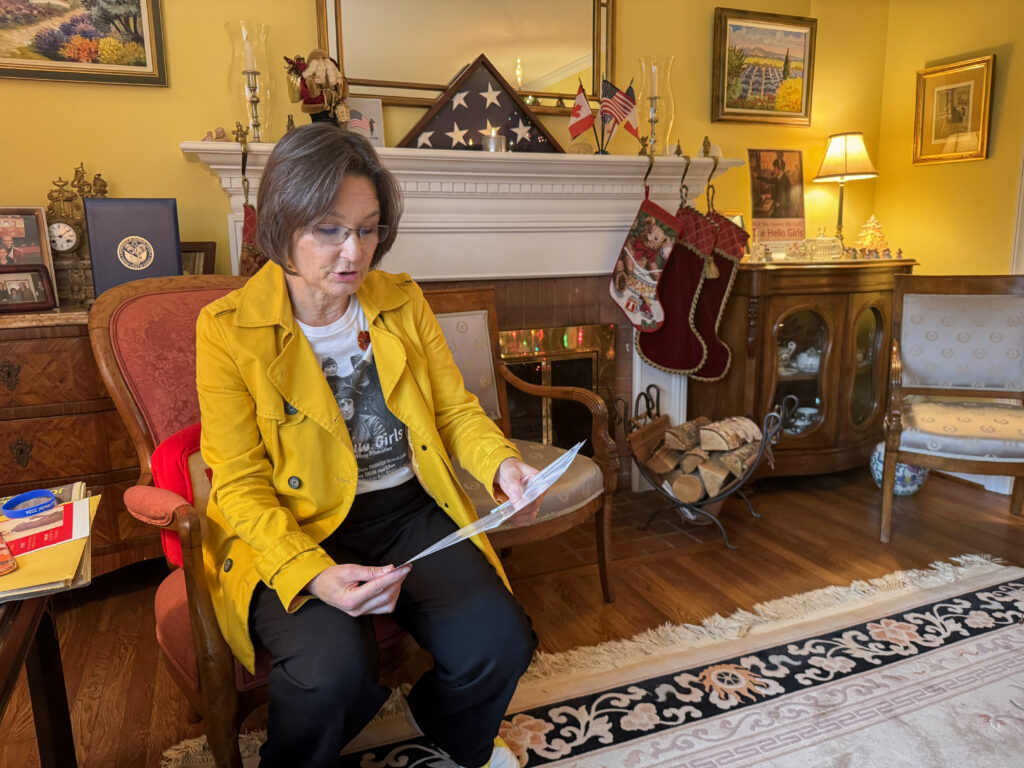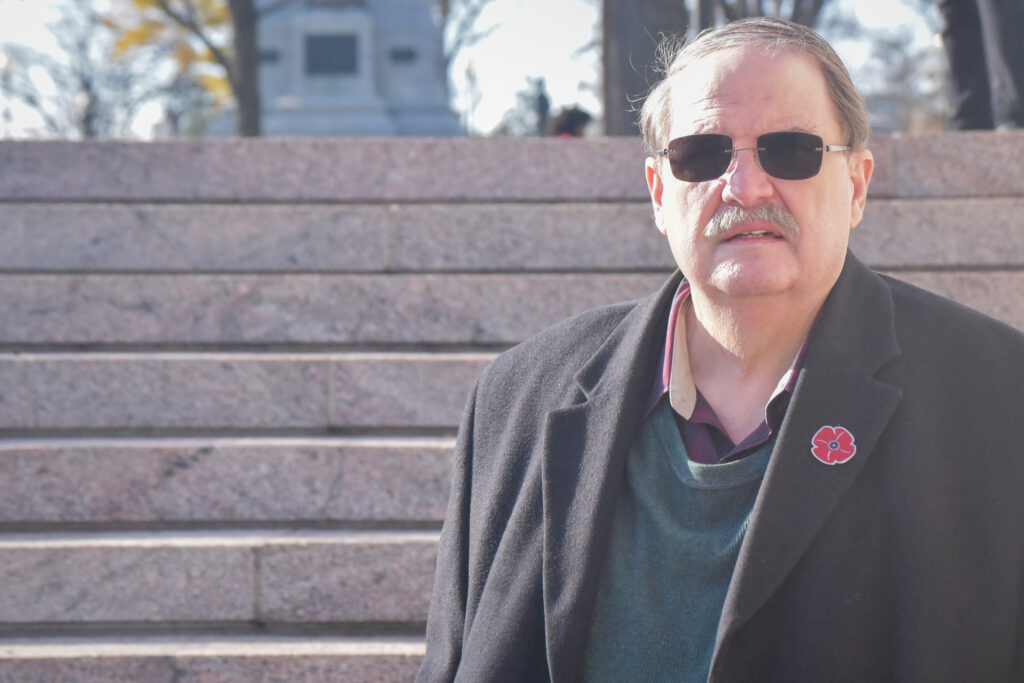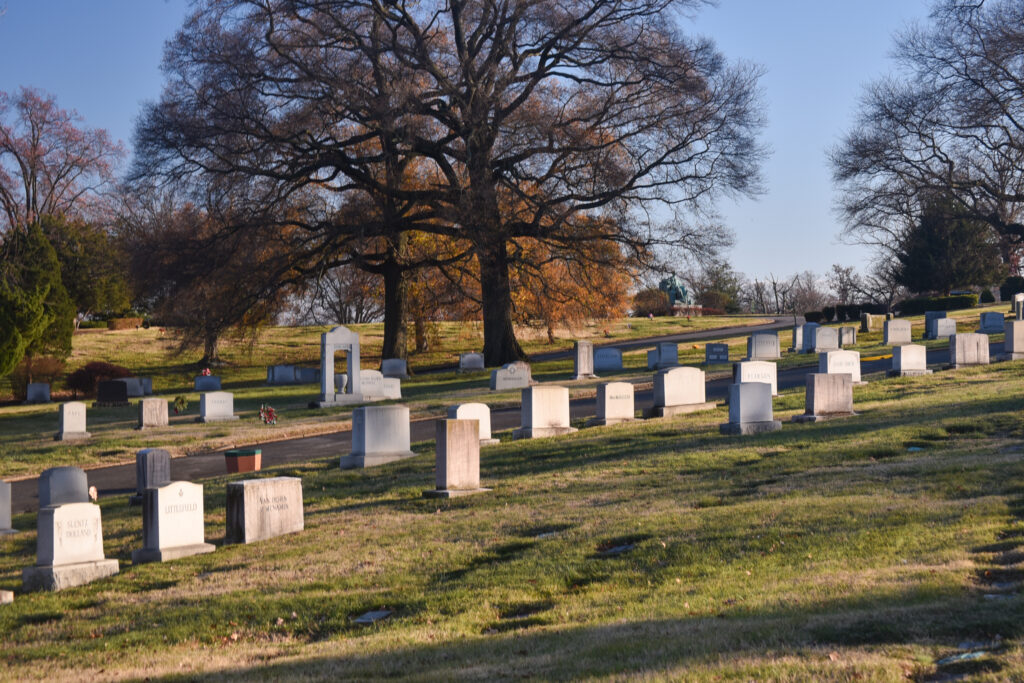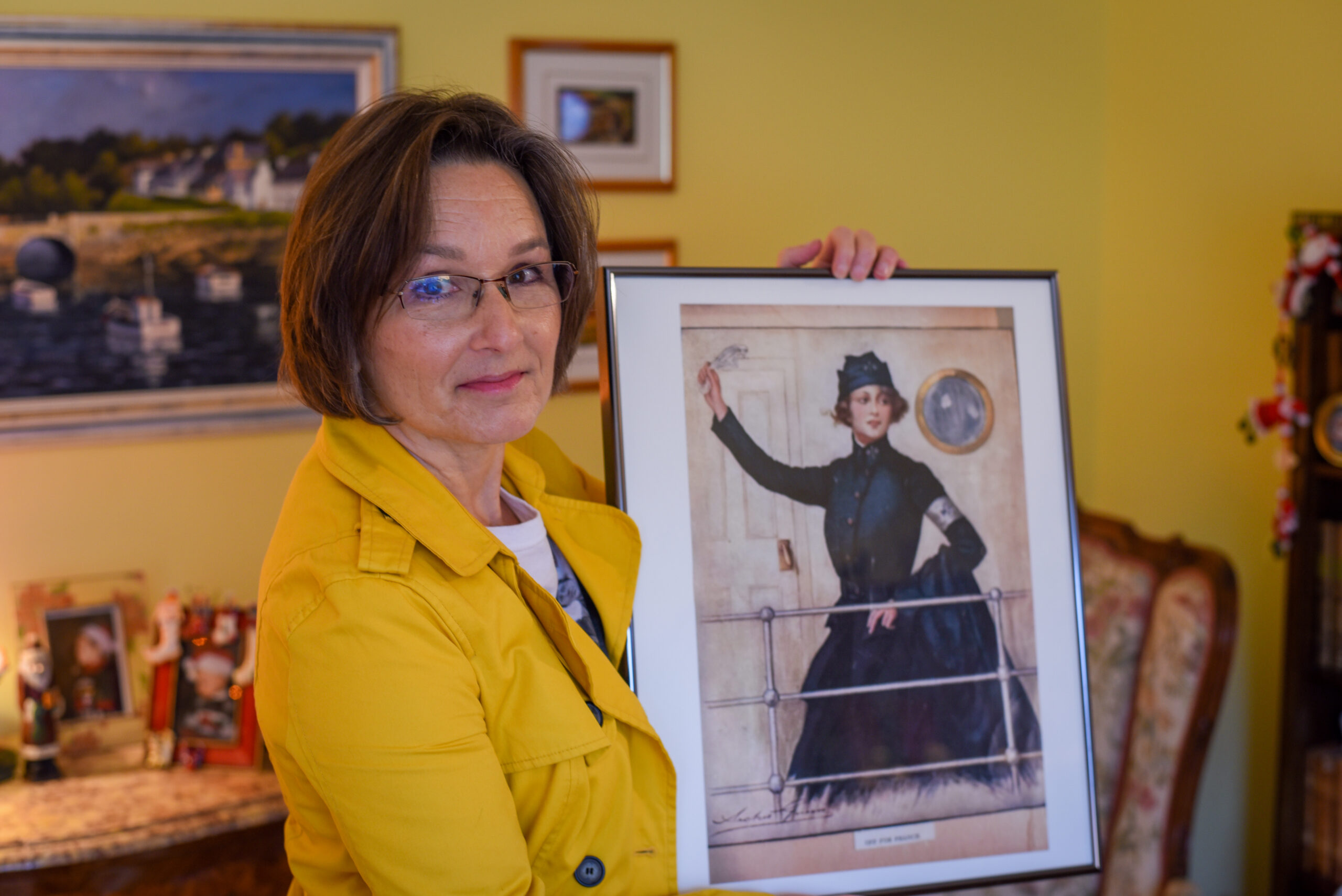Brentwood, Md. — Marie Edmee LeRoux has been buried at the Fort Lincoln Cemetery here for 79 years, but she may soon win a gold medal for her service in World War I.
LeRoux was one of 223 bilingual women deployed to France as telephone operators, often under combat conditions, as part of the U.S. Army Signal Corps. They were the country’s first women soldiers, popularly known as the “Hello Girls.”
They’ve been long overlooked for their service, but now the U.S. Congress has approved a special congressional gold medal for all of them as part of the National Defense Authorization Act for the coming year. The measure is headed to President Joe Biden’s desk for consideration.
“It’s a story that’s been forgotten and needs to be told,” said LeRoux’s granddaughter, Catherine Bourgin of McLean, VA. “With the passage of the Congressional gold medal, that’s what I want.”
Women like LeRoux braved German submarines on the transport to the war front and disease and bombardment to serve in the signal corps under the American Expeditionary Forces. Their service helped set a precedent for women’s service in the U.S. military and influenced support for the 19th amendment, guaranteeing women the right to vote.
General John Pershing requested that bilingual women operators deploy to France. They were more skilled and experienced at operating the new telephone systems of the time, and the AEF needed bilingual people to communicate with the French forces.
LeRoux had those skills. She was born in Montreal and grew up speaking French and English before moving to the U.S. at age ten, according to Bourgin. She was a passionate singer but, according to Bourgin, LeRoux abandoned her music career to answer the call.
LeRoux traveled to France in 1918, operating the switchboards that connected military commanders with the front lines and their French counterparts. She stayed in France after the war to restart her music studies. When war threatened France again in 1939, LeRoux fled the country with her four-year-old daughter in tow. She eventually came to live near family in Prince George’s County.
She passed away in 1945 and was interred in an unmarked grave here, according to her granddaughter. She did not receive a military headstone because she was not considered a veteran.

Many women who served in the U.S. Army signal corps found out they weren’t considered “soldiers” when they applied for benefits after the war. They received no veteran medical care and no federally funded rehabilitation training.
This was only remedied in 1977 when Congress acknowledged them as veterans, following decades of petitioning by Hello Girls like Merle Egan Anderson. Most had already passed away by then.
While Bourgin was researching her grandmother’s history, she discovered LeRoux was a member of the Hello Girls. She also learned that a congressional commission had recommended these female veterans receive a Congressional Gold Medal collectively.
So, in 2023, Bourgin began working with others to help her grandmother and the other Hello Girls get that medal.
Bourgin refers to the advocacy group as the “Hello Girls Family,” and she joined them to bring their story to Capitol Hill. Elizabeth Cobbs’ 2017 book also helped reintroduce the women operators’ war contribution into the mainstream.
“The telephone,” said Cobbs, “was the only way that they could rapidly communicate with troops who were facing mechanized onslaughts of the most destructive machinery ever devised by humans.”
Women could operate the war switchboards faster than their male counterparts, she said. They couldn’t even vote at the time, nor serve on juries in most states.

Chris Christopher led the advocacy charge.
As a former staffer on the World War I Centennial Commission that recommended in 2018 that the Hello Girls receive the award as part of the country’s formal efforts to commemorate the war, Christopher thought getting the award across the finish line was important. In 2023, with no bill passed, Christopher decided to tackle the issue head-on.
“I sat down,” said Christopher, “and wrote a letter to every single senator who was not already a co-sponsor.”
If a senator was not a co-sponsor, Christopher said, he researched and included World War I registration documents of a relative or ancestor of that senator to personalize the letters. He then made sure those were hand-delivered to the senators.
Volunteering in his free time, he also coordinated the network of history buffs and Hello Girl descendants and supporters for virtual meetings and lobbying on the Hill.
In the spring of 2023, Catherine Bourgin had just discovered her grandmother’s unmarked grave in Fort Lincoln Cemetery, in a plot next to her great-grandmother’s. She connected with Christopher around the same time.
Bourgin said her grandmother’s grave was symbolic of what happened to the Hello Girls. LeRoux was in an unmarked grave, Bourgin said, just miles from the nation’s capital but nevertheless lost to history.
While lobbying on Capitol Hill a few months later, Bourgin said, she told other advocates about the unmarked grave. The group got fired up, she said, and decided to change that.
They procured the grave marker and arranged for a military honors ceremony at the cemetery.
“The folks that did what they did for my grandmother,” said Bourgin, “they truly made an indelible mark on my family’s history.”

Bourgin thinks the ceremony drew attention to the gold-medal cause. They made sure members of Congress were invited.
Now it seems the advocacy may have worked. Senators are expected to take up the defense act in the coming days.
Both Bourgin and Christopher hope that the award will bring attention to the untold stories of the country’s first female soldiers, and ensure that all of them have veteran’s grave markers.
“There are so many stories out there like this,” said Bourgin, “and we just have to discover them.”
“Hopefully once we get past all this, this is going to be something that will generate an ongoing effort,” said Christopher. He wants “to get all of the Hello Girls their appropriate grave marker.”


You must be logged in to post a comment.